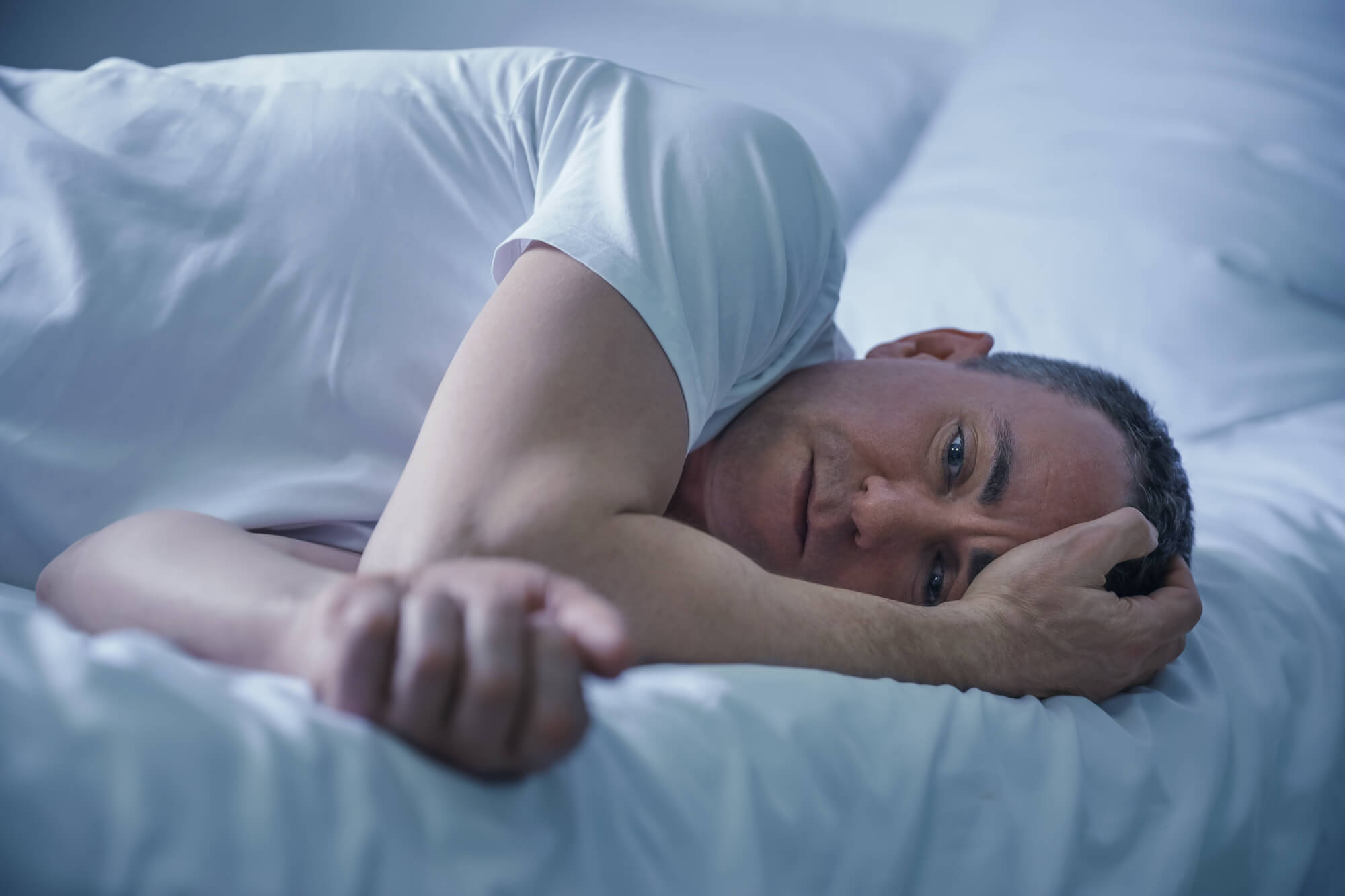Did you know that nearly 30 million Americans over the age of 12 suffer from an alcohol use disorder each year? A more sobering statistic is that only about 1.4 million of them received treatment for their drinking problem.
Alcohol use is widespread, but that doesn’t make it safe to drink heavily. Issues like liver disease caused by alcohol are preventable with treatment. Vogue Recovery Center provides alcohol abuse treatment with skilled therapists and effective programs, no matter where you are in the alcohol withdrawal timeline. If you’re worried about facing alcohol withdrawal or any mental health issue causing you to drink, Vogue Recovery Center can help.
What Is Alcohol Withdrawal Syndrome?
Alcohol withdrawal syndrome (AWS) is a set of symptoms that can occur when a person who is physically dependent on alcohol stops drinking or reduces how much they drink. It happens more often to heavy drinkers who suddenly stop alcohol consumption than to casual drinkers, and it’s more prevalent in long-term alcohol users. AWS is the body’s natural response to the absence of alcohol after becoming physically dependent on it.
What Are the Symptoms of Alcohol Withdrawal?
Alcohol withdrawal symptoms can range from mild to severe, depending on your body and your alcohol consumption. Severe symptoms of alcohol withdrawal can be dangerous. In the case of seizures or delirium tremens (DTs), they can be life-threatening. Medical supervision is often necessary for people experiencing severe AWS.
Some of the most common symptoms of alcohol withdrawal include:
- Tremors (shakes)
- Anxiety
- Nausea or vomiting
- Sweating
- Irritability
- Headache
- Insomnia
- Hallucinations (visual, auditory, or tactile)
- Seizures (in severe cases)
- Delirium tremens, a severe and potentially life-threatening condition characterized by hallucinations, confusion, rapid heartbeat, high blood pressure, and fever (in the most severe cases)

When Should You Get Help for a Drinking Problem?
If you suspect that you or someone you know may have a drinking problem, it’s essential to seek help as early as possible. Alcohol use disorders can have serious physical, psychological, and social consequences. Early intervention can greatly improve the chances of successful recovery.
Here are some signs and situations that indicate it’s time to get help for a drinking problem:
- Loss of control over your drinking: You find it difficult to control the amount you drink or repeatedly drink more than you intended.
- Cravings: You experience strong cravings or urges to drink alcohol, especially in situations or times when it’s inappropriate to do so.
- Neglecting responsibilities: Alcohol interferes with your responsibilities at work, school, or home, or you neglect your obligations because of drinking.
- Relationship issues: Alcohol causes problems in your relationships, such as conflicts with family members, friends, or a significant other.
- Health problems: Alcohol abuse leads to physical or mental health issues, like liver disease, blackouts, or depression.
- Loss of interest: You’ve lost interest in activities and hobbies you once enjoyed.
- Failed attempts to cut down: You’ve repeatedly and unsuccessfully tried to cut down or control your drinking.
- Withdrawal symptoms: You experience physical or psychological withdrawal symptoms when you try to stop drinking. Withdrawal symptoms usually cause discomfort, and they can even be dangerous. Seek immediate medical attention.
- Legal issues: You experience legal problems related to alcohol, such as DUI (driving under the influence) charges.
- Loss of memory: You experience blackouts or memory lapses after drinking.
- Escalation: Your tolerance to alcohol has increased over time, and you need more to achieve the desired effects.
- Loss of control over behavior: You engage in risky behavior while intoxicated, such as driving under the influence or acting violently.
How Long Does Alcohol Withdrawal Take?
When it comes to quitting, everyone has a different experience. Your genetic makeup, the length and severity of your alcohol addiction, and past attempts at sobriety can all affect your alcohol withdrawal timeline.
Alcohol Withdrawal Stages
Symptoms of alcohol withdrawal are often categorized into stages:
Mild, with alcohol withdrawal symptoms that include:
- Headaches
- Anxiety
- Mild shaking or tremors
- Poor sleep
- Stomach issues
Moderate, with alcohol withdrawal symptoms that include all the above mild symptoms as well as:
- Abnormal breathing
- Poor cognitive functioning
- Elevated body temperature
- High blood pressure
Severe, with alcohol withdrawal symptoms that include all the mild and moderate symptoms as well as:
- Seizures
- Hallucinations
- Disorientation
Like the severity of symptoms, the length of time it takes to withdraw from alcohol varies from person to person. For a general sense of how long it takes, here’s a breakdown of what the first 72 hours may look like.
First 12 hours: Mild alcohol withdrawal symptoms can begin within 6 to 12 hours of your last drink. You will begin to crave alcohol during this stage of withdrawal.
First 24 hours: Moderate alcohol withdrawal symptoms often appear within 24 hours of your last drink. As symptoms progress, you may experience tremors or hallucinations.
Between 24 and 72 hours: The most severe withdrawal symptoms appear and taper off during this stage of withdrawal. These can include DTs and withdrawal seizures.
Post-Acute Withdrawal: Up to One Year After Detox on the Alcohol Withdrawal Timeline
After 72 hours, you may still feel protracted withdrawal symptoms, which can persist for months—even a year—after you stop using alcohol. Clinicians call this post-acute withdrawal syndrome (PAWS). These lingering mild symptoms happen as your body repairs the damage done by alcohol and learns to function without it.
Post-acute alcohol withdrawal may include:
- Insomnia
- Irritability
- Confusion
- Memory problems
- Decreased tolerance to emotional or physical pain
- Anxiety
- Depression
What Happens After Alcohol Withdrawal?
Once all the alcohol is out of your system, it’s time to step into true recovery, where you learn what triggers you to want to drink and how you may have used alcohol to cope with things in the past. The best way to gain this knowledge is with help from a recovery center with specific alcohol use disorder treatment programs.
At a facility like Vogue Recovery Center, inpatient and outpatient treatment options are designed specifically to your situation and needs, when it comes to recovery from alcoholism. You’ll engage in addiction therapies, including individual and group therapy sessions, to develop coping skills as you address the psychological aspects of your addiction. You’ll also come up with a relapse prevention plan so when the desire to use alcohol comes up again, you’ll be better equipped to handle it.
After a treatment program, you may benefit from a support group like Alcoholics Anonymous (AA), where you are part of a community of people who understand your past and your present-day struggles.

Alcohol Addiction Treatment at Vogue Recovery Center
Alcohol use disorders may seem like a huge problem, but a treatment facility like Vogue Recovery Center can help you end your dependence on alcohol by addressing the root causes of alcohol abuse. Mental health treatment is often a key component of treating alcohol. Vogue Recovery Center offers dual-diagnosis treatment programs for co-occurring disorders of mental health and addiction.
Our alcohol treatment and substance abuse programs include these levels of care:
Medical detox: The first step in alcohol addiction recovery is detox. Doing it on your own can be dangerous. Our team is here for the management of alcohol withdrawal and to help you get through alcohol detox safely. There are treatments for alcohol withdrawal that can make the process easier and more comfortable.
Residential treatment: Inpatient treatment is another important step in alcohol rehab. It allows you to place your entire focus on sobriety. You live full-time at a treatment center and attend programs every day. Individual therapy, group therapy, psychotherapies, and holistic programs all aid in recovery.
Partial hospitalization program (PHP):APHP provides structured day treatment—usually about six hours a day. It’s like residential care, except you don’t live in a treatment facility while you work to understand and control your alcohol intake.
Intensive outpatient program (IOP):An IOP is another form of outpatient rehab and is considered a step down from a PHP. It involves less time in treatment, so you have more time to dedicate to obligations like work, school, or your family.
Outpatient rehab: Outpatient alcohol treatment rehab is the last stop before your return to everyday life. An outpatient program allows you to face real-life challenges that can threaten your sobriety while still benefiting from professional treatment.
Vogue Recovery Center can meet you wherever you are in your relationship with alcohol. We’ll help you better understand the alcohol withdrawal symptoms timeline and get you through it so you can stop drinking alcohol and start truly living life. Contact our admissions team today. We can verify your health insurance and create a unique recovery plan that suits your needs.
REFERENCES:
Alcohol Use Disorder (AUD) in the United States: Age Groups and Demographic Characteristics
Alcohol Withdrawal – StatPearls – NCBI Bookshelf (nih.gov)Alcohol withdrawal syndrome: mechanisms, manifestations, and management – PMC (nih.gov)

Evan Gove

Latest posts by Evan Gove (see all)
- Dangers of Mixing Prozac and Alcohol - September 10, 2024
- Is Prednisone Addictive? - September 9, 2024


